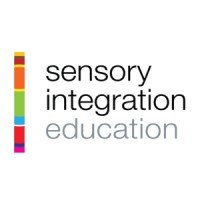Promoting positive behavior within school environments involves fostering empathy, kindness, and effective conflict resolution skills, all of which are pivotal in addressing and preventing bullying. Encouraging empathy allows students to understand and respect each other’s feelings, reducing the likelihood of aggressive behavior. Teaching conflict resolution skills equips students with strategies to resolve disputes peacefully and constructively, promoting a culture of mutual respect and cooperation. This essay explores the significance of these approaches in creating supportive school climates where bullying is actively discouraged and positive interpersonal relationships thrive.
-Encouraging Empathy and Kindness
Encouraging empathy and kindness in schools is essential for fostering a positive and inclusive environment. When students practice empathy, they develop the ability to understand and share the feelings of others, which promotes respect and reduces instances of bullying. Kindness, demonstrated through actions and words, creates a supportive community where everyone feels valued and accepted. Educators can cultivate empathy and kindness through curriculum activities that promote perspective-taking, cooperative learning projects, and discussions about diversity and inclusion. By emphasizing these values, schools not only enhance social and emotional skills but also contribute to a culture where compassion and respect thrive among students and staff alike. 
-Conflict Resolution Skills
Enhancing conflict resolution skills, especially in the context of bullying, is crucial for creating a safer and more harmonious environment in schools. Teaching children effective ways to resolve conflicts peacefully helps them manage disagreements and confrontations without resorting to aggression or escalation. Techniques such as active listening, problem-solving, and compromise are invaluable in diffusing tense situations and promoting understanding between conflicting parties. Role-playing exercises and mediation sessions can provide practical experience in applying these skills, allowing students to practice empathy and assertiveness while navigating complex social dynamics. By empowering children with these tools, schools not only equip them to handle bullying situations effectively but also foster a culture where conflicts are resolved respectfully and inclusively.
A very beneficial trait to learn in conflict resolution is emotional intelligence in conflict management, being aware of the situation and acknowledging how the other might be feeling or why they might be doing what they’re doing is a huge part of conflict resolution. Acknowledging the way you talk in a conversation is also important as it might trigger a defense mechanism that will lead to an argument. A very useful strategy to use while having a conversation is for example saying: “I felt …” and not “you made me feel like…”
In conclusion, promoting positive behavior through the encouragement of empathy, kindness, and conflict resolution skills is fundamental in combating bullying within schools. By fostering empathy, students learn to consider others’ perspectives and treat each other with compassion. Equipping them with conflict resolution skills empowers them to address conflicts peacefully, fostering a sense of community and mutual understanding. Together, these efforts contribute to creating school environments where bullying is less prevalent, and where all students can feel safe, respected, and valued. Emphasizing these values not only mitigates negative behaviors but also cultivates a culture of inclusivity and support, essential for the well-being and academic success of every student.








